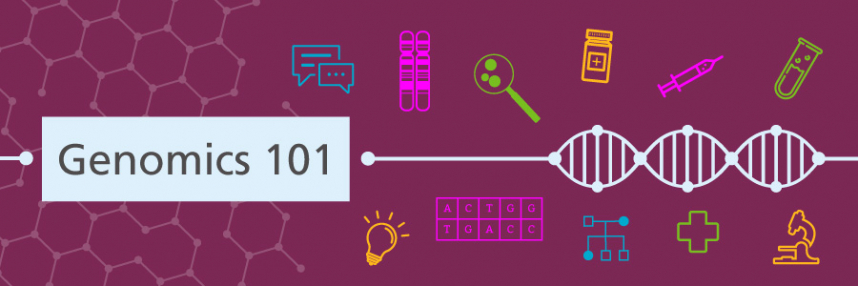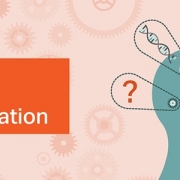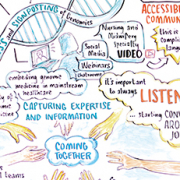New introductory Genomics 101 courses launched
Learn about the fundamentals of genomics and its impact on healthcare in our collection of introductory courses
This week, the Genomics Education Programme (GEP) has launched the final three new courses in the popular Genomics 101 series, which aims to provide an overview of the fundamentals of genomics and its applications in healthcare.
Created for those with limited or no previous knowledge of the subject, the courses in the series focus on key aspects of genomics, from the underlying science to the application in clinical practice. Lasting no more than 30-40 minutes, each of the nine courses uses a combination of film, animation and interactive elements to help learners develop their understanding of genomics. Each course ends with an assessment that, on completion, releases a certificate of participation.
The final three courses are:
Talking Genomics: Tips and Tools for Communicating with Patients
The use of genomics within healthcare is expanding, moving out of specialist areas and into routine care. As a result, more healthcare professionals and their patients will encounter it than ever before. In many ways, genomic medicine carries the same communicative, ethical and legal principles as any other clinical discipline and, for the most part, can be treated in the same way. However, there are differences and points to consider when talking to patients and their families about genomic testing. This new course will help healthcare professionals to understand some of those differences and explore some of the common misconceptions that exist around genomics, which will be useful when ‘talking genomics’.
Investigating the Genome, Parts 1 and 2
As the use of genomics in healthcare increases, growing numbers of genomic tests will be carried out and healthcare professionals are therefore more likely than ever to encounter a patient who is undergoing genomic testing. Over two parts, this course explores the genomic testing process and some of the different genomic tests available. Part 1 introduces the testing process, including why, when and how genomic testing is offered to patients – from identifying that a genomic test is needed through to the analysis of results. Part 2 looks in more detail at some of the main types of genomic tests and includes useful clinical case studies.
The other courses in the series
- Genomics in Healthcare
- Taking and Drawing a Genetic Family History
- Inheriting Genomic Information
- From Genes to Genome
- From Gene to Protein
- Dominant, Recessive and Beyond: How Genetic Conditions are Inherited
Start your Genomics 101 journey today
All our 101 courses are available through the e-LfH platform and are free to access for NHS staff and those within universities in the UK. At the end of each session, there is an opportunity to take a short quiz to test your knowledge and obtain a certificate of participation.









